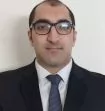A. Background
An award passed in an arbitration proceeding is considered to be in conflict with the public policy of India inter-alia if the making of the award is induced by fraud or corruption.1 Generally, such acts of fraud do not come to light immediately after the passing of an award. For example, in Venture Global Engineering LLC v. Tech Mahindra,2 the award was passed in 2006, while the fraud committed by one of the parties came into public knowledge only in 2009. Therefore, it is possible that many award-debtors may discover the fraud involved in the making of the award passed against them only after a significant period of time. In such cases, will the delay in challenging such awards be condoned by courts?
This article will explore how the Arbitration and Conciliation Act, 1996 ("the Act") deals with the limitation period for vacating awards which have been induced by fraud, the applicability of the Limitation Act, 1963 ("Limitation Act") in this regard and the academic perspective on the limitation period for challenging such awards.
B. Setting aside of arbitral award
As per Section 34(3) of the Act, an application for setting aside of an arbitral award may not be made after 3 months from the date on which the party challenging the award had received it.3 The proviso to this provision states that the Court may also grant an additional period of 30 days to challenge the award if sufficient cause is shown by the challenging party. Thus, the overall time period within which an award can be challenged is 120 days. However, the proviso ends with the words "but not thereafter", which has been construed by courts as an absolute prohibition on challenging awards beyond the 120 days period.
C. Applicability of Limitation Act to the Act
Section 43(1) of the Act provides that the Limitation Act shall apply to arbitrations as it applies to proceedings in court. However, there are various exceptions to such application. In State of Himachal Pradesh v. Himachal Techno Engineers,4 the Supreme Court of India ("SCI") has held that the proviso to Section 34(3) of the Act places a limit on the period of condonable delay by using the words "but not thereafter", and thus, an application filed under Section 34 of the Act after 120 days will not be acceptable even if sufficient cause is shown by the applicant.
In Simplex Infrastructure Limited v. Union of India,5 the SCI has held that even if Section 14 of the Limitation Act, which provides for exclusion of time of proceeding bona fide in a court without jurisdiction, is applied to Section 34(3) of the Act, the extension of the limitation period cannot go beyond the additional 30 days provided under the Act. Thus, it is settled law that the time limit for challenging awards under Section 34(3) of the Act is obligatory and inescapable.
D. Fraud and limitation
Section 17 of the Limitation Act inter-alia provides that fraudulent concealment of any fact or document which is required for establishing the right of an applicant to file an application, postpones the limitation period for the filing of such application till the applicant has discovered the fraud, or could have discovered the fraud with reasonable diligence.6 This provision is based on the fundamental principle of equity and justice that no party should be allowed to benefit from its own fraudulent conduct.7 Thus, does Section 17 of the Limitation Act come to the rescue of an award-debtor against whom an award has been passed which was obtained by fraud?
This question was answered by the SCI in P. Radha Bai and Ors. v. P. Ashok Kumar and Anr.,8 where a two-judge bench held that the time limit for challenging an award under Section 34(3) of the Act was unbreakable, and applying Section 17 of the Limitation Act to applications under Section 34 of the Act would render the words "but not thereafter" redundant. The Court, thus, held that Section 17 of the Limitation Act could not be applied to extend the limitation period enshrined under Section 34(3) of the Act.
The SCI made a reference to Article 34 of the UNCITRAL Model Law on International Commercial Arbitration ("UNCITRAL Model Law"), on which Section 34 of the Act is based. Article 34 of the UNCITRAL Model Law provides that "an application for setting aside may not be made after three months have elapsed from the date on which the party making that application had received the award". With regard to the interpretation of Article 34 of the UNCITRAL Model Law on the issue of limitation, the SCI relied on the Singapore High Court judgment of ABC Co. Ltd v. XYZ Co. Ltd,9 wherein it was held that the words "may not" in Article 34 of the UNCITRAL Model Law must be interpreted as "cannot", as the intention was to limit the time during which an award could be challenged.
The ramifications of the Singapore High Court judgment (above) are not in favour of defrauded award-debtors, who would be dispossessed of their right to challenge an arbitral award through no fault of their own. As long as the defrauding party could conceal its fraudulent conduct for 120 days from the date of receipt of the award, it would stand to benefit from its own fraud.
E. Enforcement of fraudulently obtained award contrary to fundamental policy of Indian law
In Vijay Karia. v. Prysmian Cavi E Sistemi SRL,10 the SCI has held that the phrase "fundamental policy of Indian law" under Section 34 of the Act refers to the core values of India's public policy as a nation expressed inter-alia in the time-honoured, hallowed principles followed by the courts. Allowing a party to reap the benefit of its own fraud by enforcing a fraudulently induced award would be a gross violation of the principles of equity and justice, and thus, in contravention with the fundamental policy of Indian law.
F. Academic perspective
The drafters of the UNCITRAL Model Law had decided against providing an extended limitation period for challenging awards based on fraud or concealment of evidence, as such extension would not be in consonance with the requirement for expeditious disposal of disputes in international commercial arrangements.11
Gary B Born12 has opined that the annulment of an award on the basis of public policy cannot be sought outside the statutory time limits.13 Dr. Peter Binder14 has stated that any ground for setting aside an award that emerges after the 3 months period, is deemed to be expired and thus cannot be raised.15
However, Stefan Michael Kroll16 is of the opinion that the use of the word "may" in Article 34 of the UNCITRAL Model Law indicates the existence of some discretion with a court to hear a case after the expiration of the time limit.17 He made a reference to the English decision of Aoot Kalmnoft v Glencore International AG and Another,18 wherein it was held that a party looking to challenge an award beyond the limitation period must satisfy the court that there existed a reasonable excuse for extending the limitation period.19
G. Scope of flexibility afforded to States
In Bloomberry Resorts v. Global Gaming Philippines LLC,20 while holding that the time period for challenging an arbitral award under Singaporean law could not be extended even in cases of fraud, the High Court of Singapore observed that national legislation of a state could adopt a distinct regime for challenging awards that have been obtained by fraud. The Court referred to the statutory position adopted in Malaysia, New Zealand and Ireland, where the exclusion of the 3-month time limit in cases of fraud or corruption has found explicit expression.
Similarly, in Sun Tian Gang v. Hong Kong & China Gas (JILIN) Ltd,21 the Hong Kong Court of First Instance held that the national legislation of a state may have its own domestic provisions for extending the time limit under Article 34 of the UNCITRAL Model Law under certain situations.
For instance, the arbitration regime of New Zealand makes a special provision for awards that have been induced by fraud or corruption, by making the 3 months' limitation period inapplicable for challenges to awards on the ground of fraud or corruption.22 In Netherlands, after the passing of an award, the arbitral tribunal has to ensure that the original award is deposited with the Registry of the District Court within whose district the place of arbitration is located.23 The right to make an application for revocation of an arbitral award extinguishes 3 months after the date of deposit of the award with the Registry of the relevant District Court.24 However, if fraud or forgery is involved in the making of the award, the application for revocation of the award shall be brought within 3 months after the fraud or forgery has become known.25
H. Conclusion
The fact that the drafters of the Act have included an additional period of 30 days for challenging an award goes to show that our arbitration regime has already made a slight departure from the language of Article 34 of the UNCITRAL Model Law.
The need for specific provisions to deal with awards which are a product of fraud is gaining traction in India, as evident by the Arbitration and Conciliation (Amendment) Ordinance, 2020 ("2020 Ordinance").26 Section 36(2) of the Act provides that a separate application has to be made for a stay of the operation of an award pending the disposal of the application under Section 34 of the Act against such award. Section 36(3) of the Act stipulates that the Court may, subject to such conditions as it may deem fit, grant stay of the operation of the award. The 2020 Ordinance has added a proviso to Section 36(3) of the Act, which provides that a Court shall grant an unconditional stay on the operation of an award inter-alia where a prima-facie case of fraud or corruption in the making of the award has been made out. As it is clear that an exception has been made in the enforcement of awards which have been induced by fraud, it is recommended that a similar exception may also be made in the limitation period for challenging such awards.
Therefore, the author opines that providing a separate limitation period for challenging awards on the ground of fraud or corruption under Section 34 of the Act will not only be expedient, but will also be consistent with the object of the Act and the scheme of the UNCITRAL Model Law.
Footnotes
1. Arbitration and Conciliation Act, 1996, Explanation 1 to §34(2)(b)(ii).
2. (2018) 15 SCC 656.
3. See State of Himachal Pradesh v. Himachal Techno Engineers, (2010) 12 SCC 210: "depending upon the months, it may mean 90 days or 91 days or 92 days or 89 days."
4. Id.
5. (2019) 2 SCC 455.
6. Limitation Act, 1963, §17(1).
7. Pallav Sheth v. Custodian, (2001) 7 SCC 549.
8. (2019) 13 SCC 445.
9. [2003] SGHC 107.
10. AIR 2020 SC 1807.
11. HOWARD M. HOLTZMANN AND JOSEPH NEUHAUS, A GUIDE TO THE UNCITRAL MODEL LAW ON INTERNATIONAL COMMERCIAL ARBITRATION: LEGISLATIVE HISTORY AND COMMENTARY 1002-1003 (Kluwer Law International 1989).
12. Currently serves as the Chair of the International Arbitration Practice Group at Wilmer Cutler Pickering Hale and Dorr LLP and the President of the Singapore International Arbitration Centre ("SIAC") Court of Arbitration.
13. GARY B. BORN, INTERNATIONAL COMMERCIAL ARBITRATION 3380 (Kluwer Law International, Second Edition, 2014).
14. Currently serves as a senior member of the International Arbitration Team at OBLIN Attorneys at Law LLP.
15. PETER BINDER, INTERNATIONAL COMMERCIAL ARBITRATION AND MEDIATION IN UNCITRAL MODEL LAW JURISDICTIONS 452 (Kluwer Law International 2019).
16. Retained by UNCITRAL to prepare the DIGEST on the UNCITRAL Model Law on International Commercial Arbitration. Currently serving as Professor for International Dispute Resolution at Bucerius Law School.
17. JULIAN DAVID MATHEW LEW, LOUKAS A. MISTELIS AND STEFAN MICHAEL KROLL, COMPARATIVE INTERNATIONAL COMMERCIAL ARBITRATION 671-672 (Kluwer Law International 2003).
18. [2002] 1 All ER 76.
19. KROLL, supra note 13, at 672.
20. [2020] SGHC 01.
21. [2016] HKCU 2334.
22. Arbitration Act 1996, art. 34 cl. 3.
23. Burgerlijk Wetboek (Civil Code of the Netherlands) art. 1058.
24. Id. art. 1064.
25. Id. art. 1068.
26. Arbitration and Conciliation (Amendment) Ordinance, 2020.
The content of this article is intended to provide a general guide to the subject matter. Specialist advice should be sought about your specific circumstances.



